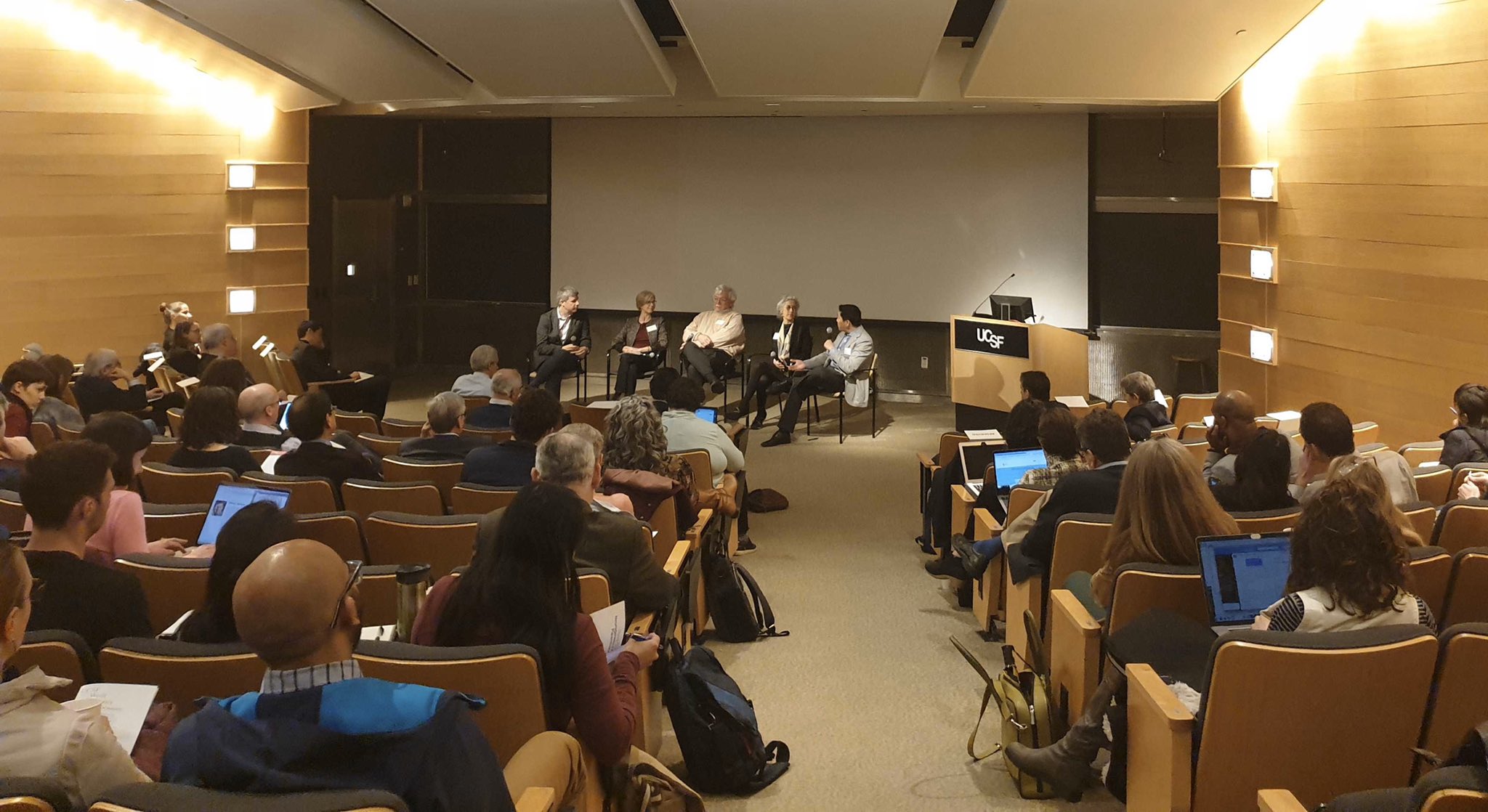UCSF Weill Neuroethics Symposium

We were very pleased to help host the UCSF Weill Neuroethics Symposium, part of the Weill Neurosciences Symposium Series. Given the potential of new advances to change the lives of patients with neurologic and psychiatric illness, and even society at large, the symposium had two main aims: to better prepare the neurosciences community to anticipate and address neuroethical concerns arising from their work, and to prepare for broader public engagement with these issues. The program began with introductory remarks by Stephen Hauser, Director of the UCSF Weill Institute for Neurosciences, sharing his vision for neuroethics in the UCSF Weill Institute and drawing upon his experience as a member of President Obama’s Presidential Commission for the Study of Bioethical Issues.
Our first panel, Neurogenetics & Parenthood, was anchored by a presentation by Jennifer Doudna, providing an introduction to CRISPR-Cas9 gene editing and the potential implications of this technology for biomedicine and society. Hank Greely presented a brief yet comprehensive overview of potential domains of concern in advancing neuroscience: prediction, mind-reading, responsibility, treatment, enhancement, and ethical research. Laurie Zoloth then offered historical and humanistic insights cautioning that new technologies may alleviate but cannot eliminate the uncertainties of parenthood. Stephan Sanders joined these speakers in a wide-ranging discussion including scientists’ responsibilities to society and anticipated dilemmas in first-in-human trials of upcoming neurogenetic therapies.
Our second panel, Neuromodulation Roundtable, considered common ethical dilemmas in a range of new applications of neurotechnology to monitor and modulate brain function. Jose Carmena demonstrated exciting new approaches to sensing and stimulating the brain from an engineering and industry perspective. Meanwhile, patients/participants’ perspectives were represented in Katherine Scangos’s presentation, with observations from the first patient enrolled in a novel trial of closed-loop stimulation for treatment-resistant depression (whom we were honored to have in attendance). Joseph Fins discussed decades of scholarship and self-examination regarding his team’s use of deep brain stimulation to restore function in patients with disorders of consciousness. Finally, Sara Goering drew upon ideas from disability studies and her group’s empirical research to argue that some conceptual worries about agency or self-ownership may be mitigated by adopting a more constructive conception of “co-agency” between neural devices and their users.
After a lunch break featuring several smaller, informal conversations among our invited experts and UCSF/UC Berkeley trainees, Eric Topol headlined our third panel, Patient Data in the Digital Age, with an alternately exhilarating and frightening presentation detailing the incredible reach of mobile computing and artificial intelligence into myriad facets of our daily lives and health. Kate Rankin discussed pathways for bringing powerful analytic and visualization tools from the research setting back into the clinic to improve diagnosis and decision-making, though with potential ethical and policy concerns. Anna Wexler noted that while privacy and agency raise deep concerns, we should also be wary of commercial and other interests in exaggerating the power of currently available neural devices. Gabe Aranovich offered observations from his work in private industry, including the attention paid to issues of privacy and confidentiality in digital health startups and challenges of ethical governance in institutions dedicated to maximizing shareholder value.
In his closing remarks, Sam Barondes recalled the first neuroethics meeting in 2002, also held in San Francisco. (According to Zach Hall, the term “neuroethics” was coined by Bill Safire at the UCSF Mission Bay campus!) He noted with satisfaction both that neuroscientific tools and understanding have advanced considerably from the techniques discussed that day, and that the neuroethics community has matured and grown more sophisticated in addressing the implications of these changes.
 Decision Lab
Decision Lab